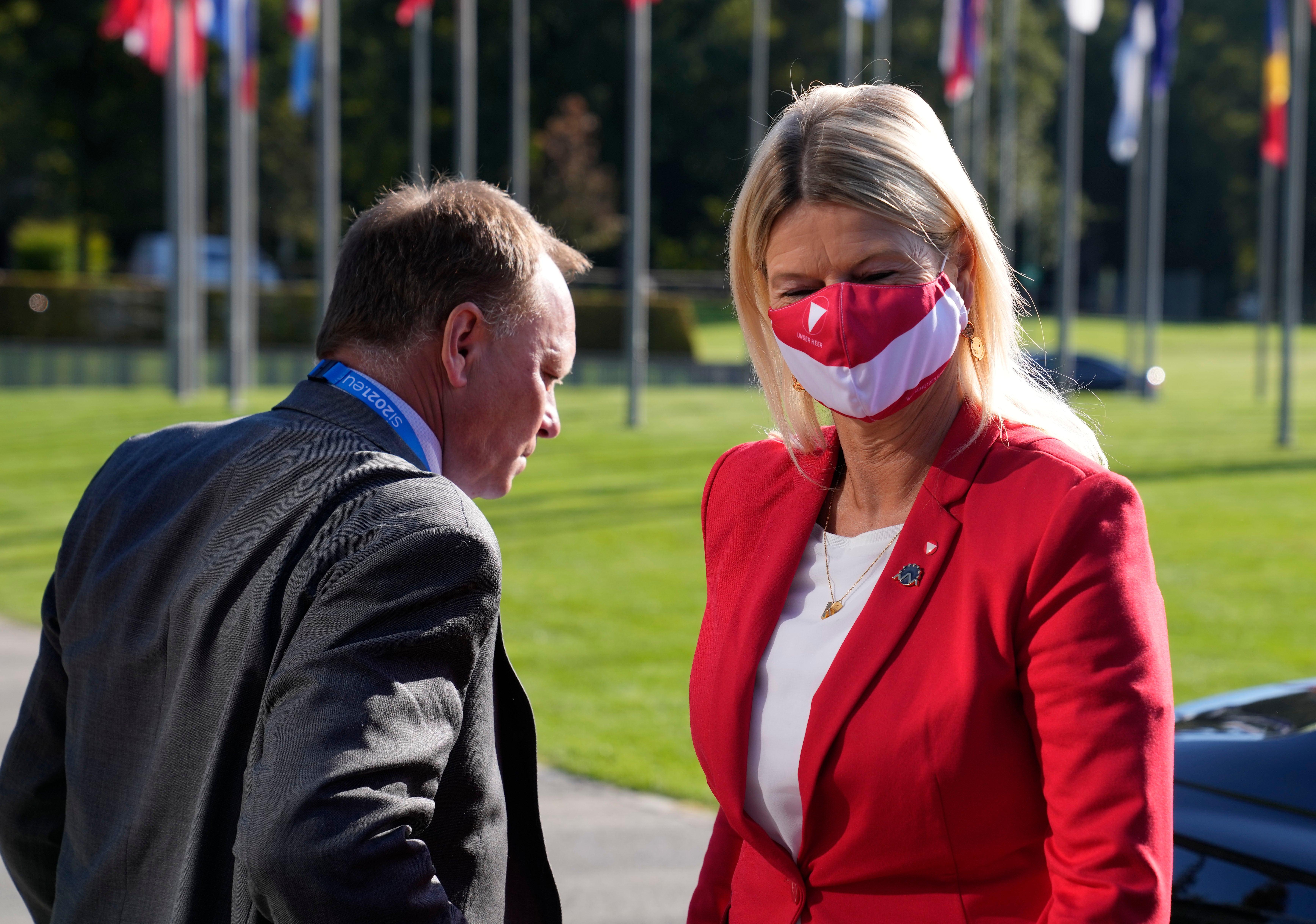EU pushes for more autonomy amid Afghanistan fallout
European Union ministers are mulling over ways to beef up the 27-nation bloc's strategic autonomy and improve its capacity to respond to future crises

Still reeling from the European Union's shortcomings in Afghanistan officials from the 27-nation bloc met Thursday to discuss ways to improve their response to future crises and not be so reliant on the U.S.
European ministers of defense and foreign affairs gathered in Slovenia for talks also involving NATO and U.N. officials to look at ways to improve the bloc’s operational engagement and develop a rapid response force capable of operating in difficult military theaters.
Ministers will discuss plans for the so-called strategic compass, a document aiming at harmonizing crisis management and defining defense ambitions for the bloc that is expected to be drafted before the end of the year.
“It’s clear that the need for more European defense has never been as much as evident as today after the events in Afghanistan,” EU foreign policy chief Josep Borrell said upon his arrival.
“There are events that catalyze the history," he said. "Sometimes something happens that pushes the history, it creates a breakthrough and I think the Afghanistan events of this summer are one of these cases.”
The Taliban’s takeover of Afghanistan and the rushed airlift operation out of the country that followed the U.S. decision to pull out from the country have laid bare the EU’s dependency on its ally. Without American support, European countries wouldn't have been able to guarantee the safe passage of their citizens or even their troops out of the war-torn country.
“The strategic situation, the geostrategic changes, show that now we need a stronger Europe,” said Claudio Graziano, the chairman of the EU military committee. “The situation in Afghanistan, Libya, Middle East, Sahel show that now it’s the time to act starting with the creation of a rapid European entry force able to show the will of the European Union to act as a global strategic partner. When if not now, later would be late.”
But finding a consensus among the 27 EU member states to create such a force is a tall order. European countries on the border with Russia often oppose the idea of autonomy, for instance Poland and the Baltic nations. EU heavyweight Germany is also a strong supporter of using NATO for security operations and keeping the U.S. defense umbrella in Europe.
Slovenian Defense Minister Matej Tonin, whose country currently holds the EU’s rotating presidency, however, said he believes a small majority of countries is favorable to the idea.
The EU is already endowed with rapid reaction teams — so-called battlegroups — made up of about 1,500 personnel. But they have never been used in major crises, and the bloc doesn't deploy EU missions to active conflict zones.
Tonin said defense ministers have started debating how to send soldiers abroad in a quick and efficient way, even without EU consensus, by lifting the unanimity requirement.
“Maybe the solution is we invent a mechanism where a classical majority will be enough and those who are willing will be able to go,” he said. “If a majority within the European Union decides to send somewhere the troops, they can go in the name of the European Union. And the countries which will participate in these groups will be let’s say the willing countries. So that we don’t force the countries who don’t want be part of that mission.”
The situation in Sahel has drawn comparisons with the U.S departure from Afghanistan since the French are preparing to reduce their military presence in the West Africa region where extremist groups are fighting for control.
In June, French President Emmanuel Macron announced the end of Operation Barkhane, France’s seven-year effort fighting extremists linked to al-Qaida and the Islamic State group in Africa’s Sahel region. France’s more than 5,000 troops will be reduced in the coming months, although no timeframe has been given. Some observers have expressed worries a scaling down of the foreign forces could lead to more instability in the region.
“We learned very important lessons and that we should not repeat the same mistakes in the Sahel,” Tonin said. “It’s even more important for the European Union than Afghanistan. It can have greater consequences.”